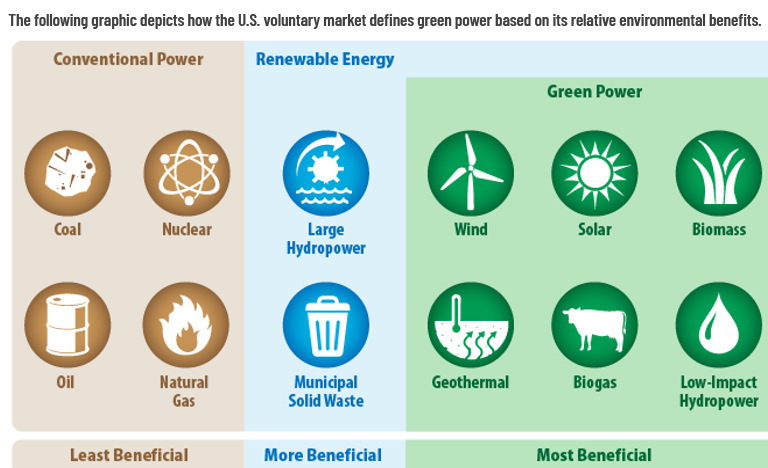
Eco-Friendly Power: Sustainable Energy for Tomorrow
The global shift towards sustainable practices is prominently reflected in the pursuit of eco-friendly power solutions. This article delves into the significance of eco-friendly power, the diverse technologies driving it, environmental benefits, and the collective responsibility we share in fostering a cleaner and greener energy landscape.
The Essence of Eco-Friendly Power
Eco-friendly power represents a paradigm shift in the way we generate and consume energy. It revolves around the utilization of renewable resources, emphasizing sustainability and reducing environmental impact. This departure from traditional fossil fuel reliance is crucial in mitigating climate change, preserving ecosystems, and ensuring a more resilient energy future.
Diverse Technologies Driving Eco-Friendly Power
The landscape of eco-friendly power is diverse, with a range of technologies contributing to the green energy revolution. Solar, wind, hydropower, geothermal, and biomass are among the key players. Each technology harnesses unique renewable resources, offering a variety of sustainable options to meet the growing demand for clean energy. The integration of these technologies contributes to a more balanced and resilient energy mix.
Environmental Benefits of Green Energy
The environmental benefits of embracing eco-friendly power are manifold. Unlike conventional power sources, renewable energy technologies produce little to no greenhouse gas emissions during operation. This reduction in emissions significantly contributes to mitigating climate change and improving air quality. Additionally, eco-friendly power helps conserve water resources, protect biodiversity, and reduce the ecological footprint associated with energy production.
Solar Power: Harnessing Abundant Sunlight
Solar power stands out as a frontrunner in the eco-friendly power revolution. Photovoltaic (PV) technology converts sunlight into electricity, offering a clean and abundant energy source. With continuous advancements in solar panel efficiency and declining costs, solar power has become increasingly accessible, making it a viable solution for residential, commercial, and utility-scale applications.
Wind Energy: Capturing the Power of the Breeze
Wind energy, derived from the kinetic energy of the wind, has witnessed significant growth in recent years. Wind turbines, both onshore and offshore, capture the energy of the breeze and convert it into electrical power. The scalability and minimal environmental impact of wind energy make it a key player in the transition to eco-friendly power on a global scale.
Hydropower: Harnessing Flowing Water for Electricity
Hydropower has long been a reliable source of renewable energy. It harnesses the energy of flowing water to generate electricity through dams and other water infrastructure. While large-scale hydropower projects have been essential contributors, innovations in run-of-river systems aim to reduce the environmental impact, ensuring sustainability in hydropower generation.
Geothermal Energy: Tapping into Earth’s Heat
Geothermal energy taps into the Earth’s internal heat for electricity generation and heating applications. With minimal environmental impact and a constant energy supply, geothermal power plants provide a reliable source of eco-friendly power. Advances in enhanced geothermal systems hold the potential to expand the reach of geothermal energy even further.
Biomass: Organic Matter for Sustainable Energy
Biomass power utilizes organic materials, such as wood, crop residues, and organic waste, to produce energy. By converting biomass into biofuels or utilizing it for power generation, this eco-friendly power source reduces reliance on fossil fuels. Sustainable biomass practices, including reforestation and waste-to-energy technologies, enhance the environmental credentials of this renewable resource.
Individual Responsibility in Adopting Eco-Friendly Power
While large-scale initiatives are pivotal, individual responsibility plays a crucial role in the widespread adoption of eco-friendly power. Individuals can make eco-conscious choices by opting for renewable energy plans, investing in energy-efficient technologies, and advocating for clean energy policies. This collective effort contributes to a sustainable energy transition and reinforces the importance of individual actions in the broader context.
Global Collaboration for a Sustainable Future
The transition to eco-friendly power requires global collaboration and shared responsibility. Governments, businesses, communities, and individuals must work together to accelerate the shift to sustainable energy practices. International cooperation, policy frameworks, and investments in research and development are essential components in building a resilient and sustainable energy future for generations to come.
To explore in-depth insights into the significance of eco-friendly power and its role in shaping a sustainable energy future, visit Eco-Friendly Power. Discover practical tips, resources, and expert guidance on embracing clean and sustainable energy solutions.










